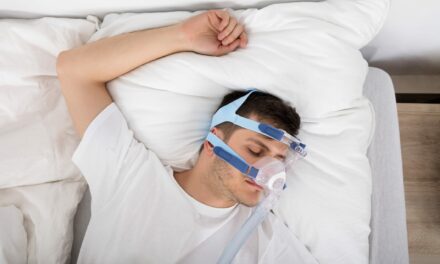To increase awareness surrounding the sleep apnea, Kingman P. Strohl, MD, author for Merck Manuals and Professor of Medicine at the Case School of Medicine, offered some insights for preparing for a conversation with your doctor. In a new editorial on MerckManuals.com, Strohl details questions your doctor is likely to ask during your appointment.
1. What are your sleep habits?
Understanding sleep apnea starts with understanding sleep. Despite spending about one third of our lives asleep, it’s not something most people understand or spend much time thinking about. Be prepared to talk to your doctor about your sleep habits, including how much sleep you get, your bedtime routine, what you do in the hours before you sleep, your caffeine intake, etc. Spend the week or two before your appointment tracking these factors, and use them as a jumping off point for an honest conversation about your sleep habits.
2. Do you have a family history of sleep apnea?
Many of the factors that contribute to sleep apnea tend to run in families, including a narrow throat, thick neck and round head, as well as obesity and the kind of sleeper you are. As a result, people with an immediate family member with sleep apnea are more likely to have it themselves. People who think a family member may have undiagnosed sleep apnea should also bring this up with their doctor. Sleep apnea also becomes more common with age. Prepare for a conversation with your doctor by talking to parents and siblings about if—and when—they were diagnosed with sleep apnea.
3. Do you fall asleep during the day?
Sleep apnea rises to the level of a disorder when being tired impacts your day-to-day life. But there’s a difference between feeling fatigued and actually being sleepy. If you feel like you have little energy during the day but don’t actually fall asleep, the underlying cause may be something other than sleep apnea, such as anemia, a thyroid condition or chronic fatigue syndrome.
Make sure you’re accurately describing your tiredness during the day to your doctor so they can make the correct diagnosis.
4. What other conditions do you have?
The unrefreshing sleep and periods of not breathing that come with sleep apnea increase the risk of serious health concerns including stroke, heart attack and high blood pressure. Doctors will ask about these conditions, as well as obesity, when discussing sleep apnea. Often, treating sleep apnea can lead to improvement in these conditions and other aspects of your health like alertness and sense of wellbeing.
Key Considerations for Treatment
Addressing sleep apnea starts with recognizing just how effective that treatment can be. A good night’s sleep, night after night, can improve your relationships, your daily energy levels and your overall outlook on life. It’s a significant step in reducing the risk or severity of a number of serious chronic conditions.
Photo ID 93872334 © Dmytro Zinkevych | Dreamstime.com



